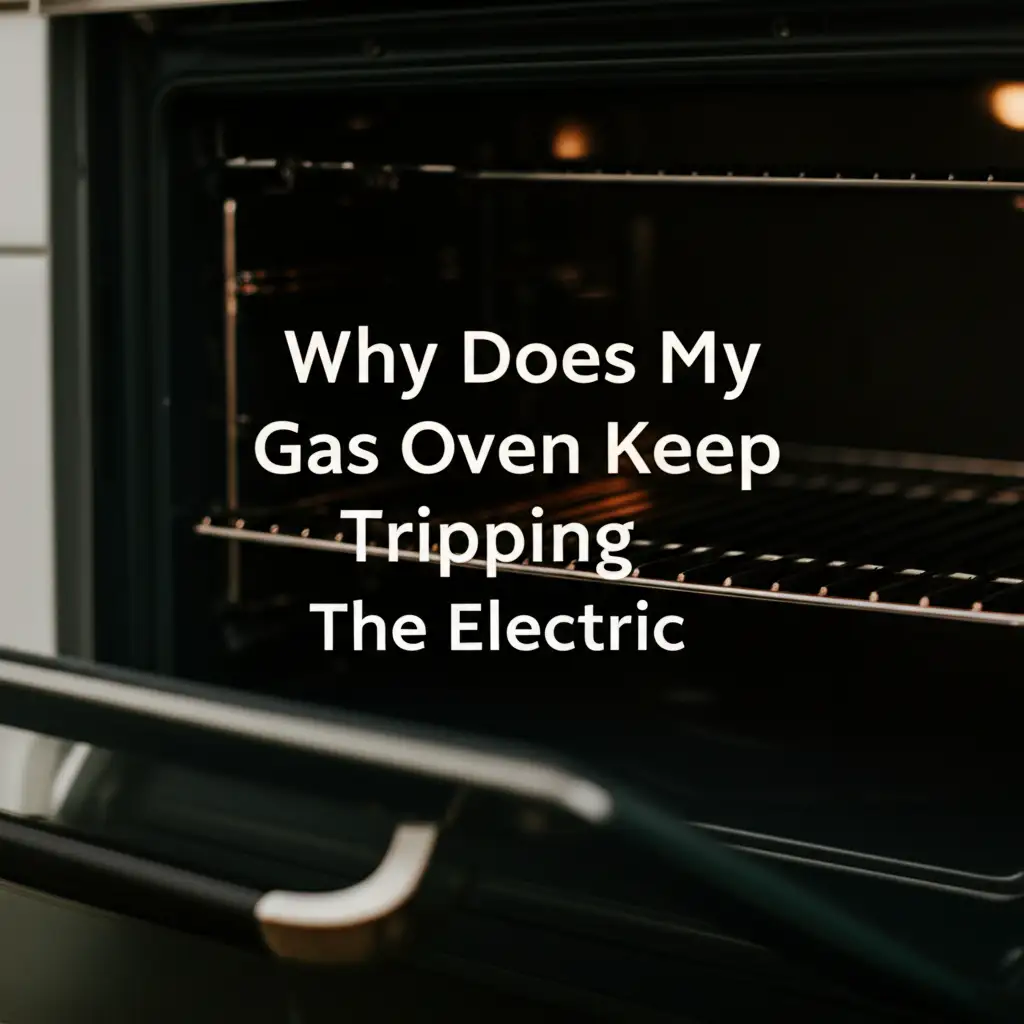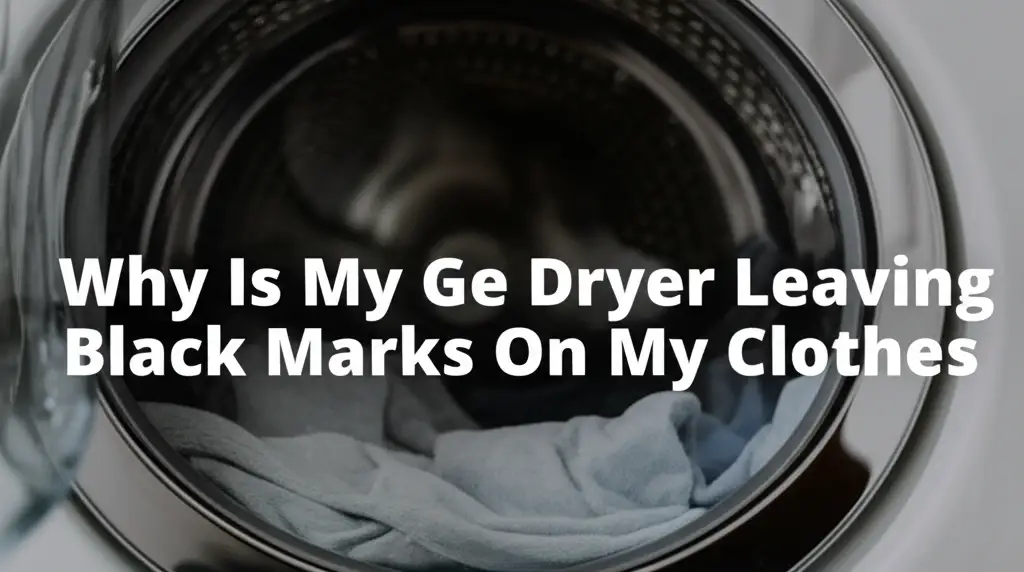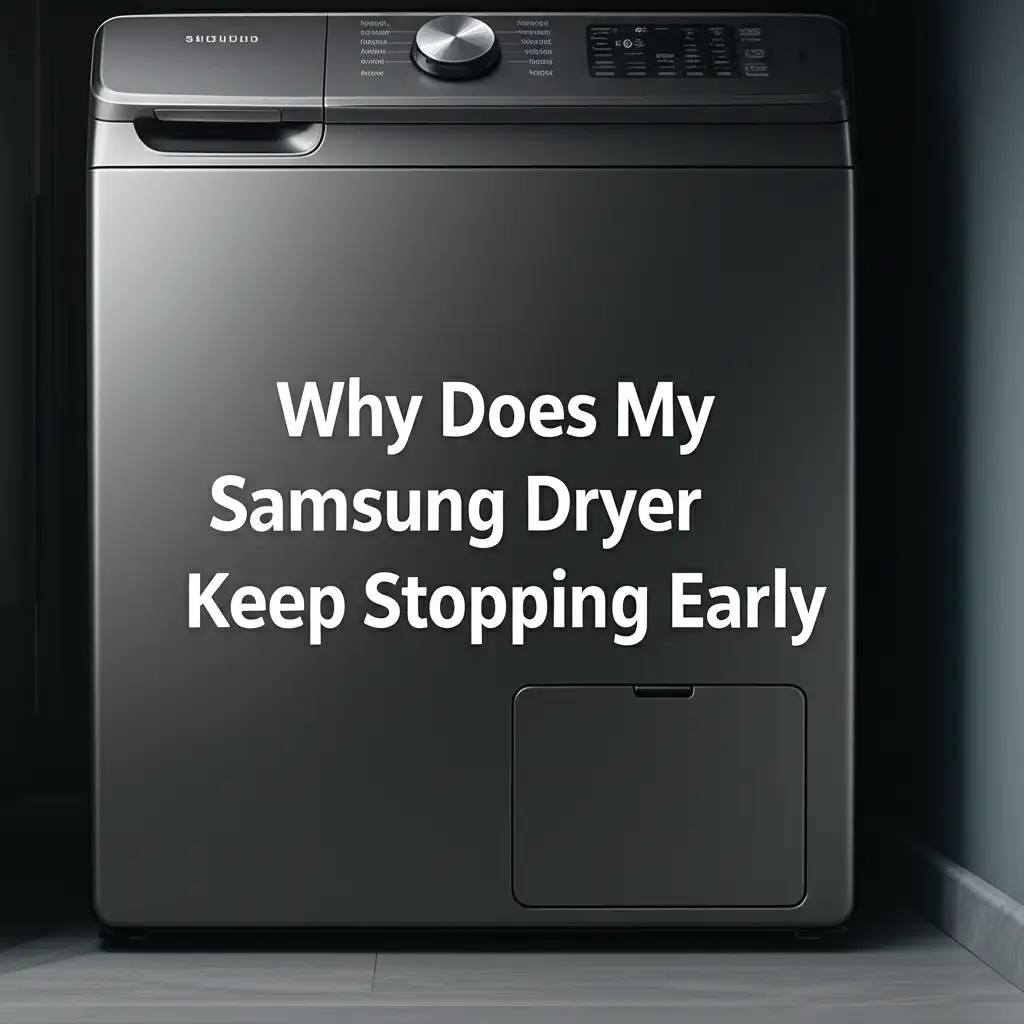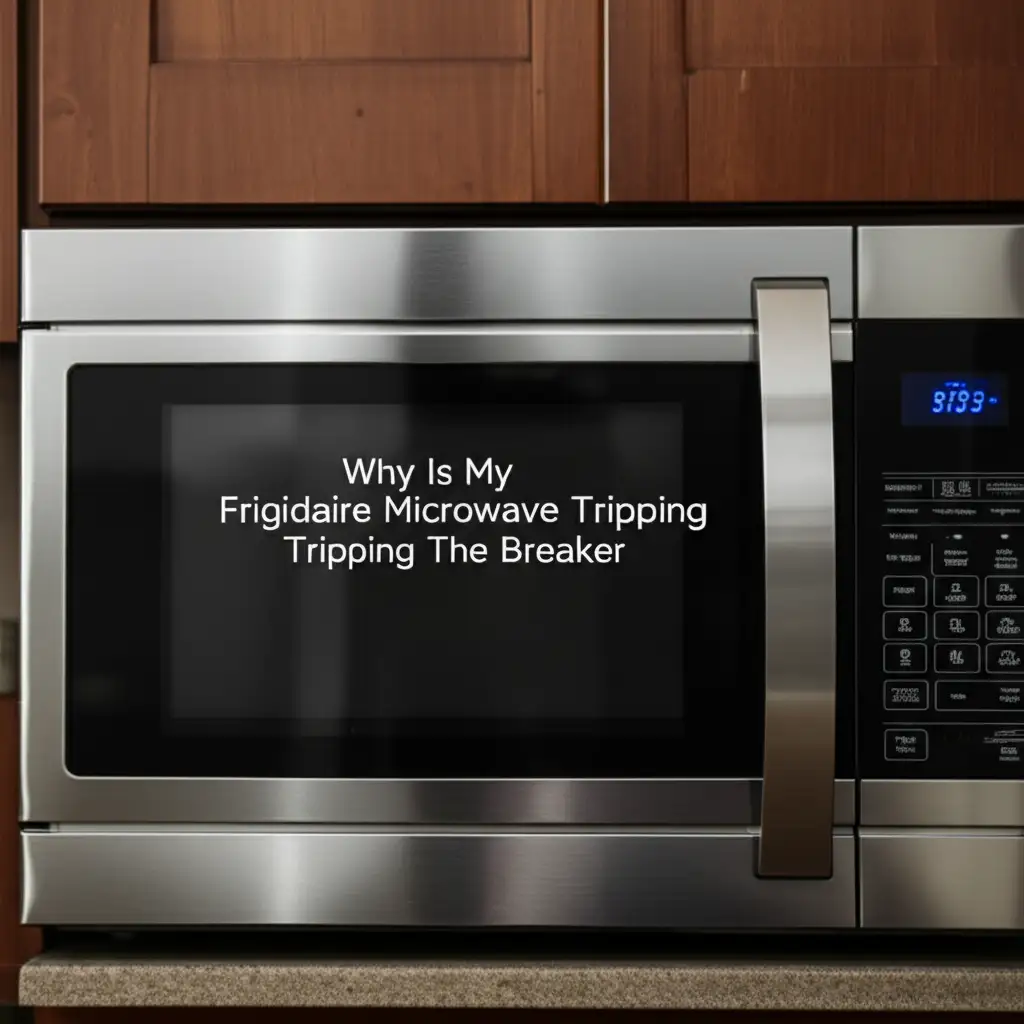· Davia Murnell · Appliance Troubleshooting · 16 min read
Why Does My Gas Oven Keep Tripping The Electric

Resolving Gas Oven Electrical Tripping Issues Safely
It can be very frustrating when your kitchen appliance does not work as it should. You are ready to cook dinner, but your gas oven keeps tripping the electric. This problem disrupts your cooking plans. It also raises safety concerns for your home. You might wonder why a gas appliance needs electricity at all.
Gas ovens rely on electrical power for many essential functions. These include ignition, lights, and control panels. A trip means a safety device, like a circuit breaker, detected an electrical fault. It cuts power to prevent damage or fire. Understanding the causes helps you find a solution. This article will explore why your gas oven causes electrical trips. We will look at common electrical components and troubleshooting steps. My goal is to help you restore your oven’s function safely.
Takeaway
- A gas oven needs electricity for components like the igniter and control board.
- Common causes for electrical trips include a faulty igniter, wiring issues, or a short circuit.
- Diagnosing the problem often involves checking electrical connections and oven components.
- Always prioritize safety by turning off power before inspection.
- Professional help is necessary for complex electrical issues or gas leaks.
Your gas oven keeps tripping the electric often due to a faulty electrical component, like the igniter or fan, drawing too much current or having a short circuit. Wiring problems, an overloaded circuit, or a failing control board can also cause this issue.
Understanding How Your Gas Oven Uses Electricity
Many people think gas ovens only use gas. This is not entirely true. A modern gas oven relies heavily on electricity. This power runs several key components. Understanding these parts helps you diagnose tripping issues.
Electricity powers the oven’s ignition system. This system includes the igniter. The igniter heats up to light the gas. Without a working igniter, your oven will not produce a flame. It is a vital part of the oven’s operation.
The oven’s control board also needs electricity. This board manages temperature settings. It controls oven functions like baking and broiling. It also operates timers and display screens. The control board acts as the brain of your oven.
Most gas ovens have internal lights. These lights turn on when you open the oven door. They help you see inside the oven. A small motor often powers a convection fan. This fan circulates hot air for even cooking. Both the lights and the fan use electricity.
Sometimes, you might wonder if your oven is truly gas or electric. If it uses a gas flame for heating but plugs into an electrical outlet, it is a gas oven with electrical components. You can check your appliance’s specifications to confirm its type. Knowing your oven type helps in troubleshooting. If you have a different type of oven, you might want to learn how to know if you have an electric oven.
Some kitchens combine appliances. You might have a gas hob on top with an electric oven below. This setup requires separate electrical connections for each appliance. It is important to understand that you can have an electric oven and gas hob in the same kitchen. This setup still highlights the electrical needs of cooking appliances. All these electrical parts are potential sources for a tripping circuit. If any of them draw too much power or develop a fault, the circuit breaker trips.
Common Culprits: Why Your Gas Oven Trips the Electric
When your gas oven causes the circuit breaker to trip, it points to an electrical problem. Several common issues can lead to this. Identifying the specific culprit helps you find the right fix. Let’s look at the most frequent causes.
A faulty igniter is often the main reason. The igniter draws a large amount of electricity. It heats up to ignite the gas. An aging or failing igniter can draw excessive current. This overcurrent causes the breaker to trip. The igniter might work for a short time before tripping. Or it might trip immediately.
Wiring issues inside the oven are another common cause. Wires can become old and frayed. Rodents might chew on them. Loose connections can also happen over time. These issues create a short circuit. A short circuit allows electricity to flow where it should not. This triggers the circuit breaker as a safety measure.
The convection fan motor can also be a problem. This fan helps circulate heat evenly. If the motor is failing, it can draw too much power. This increased draw can cause the breaker to trip. You might hear strange noises from the fan before it fails completely.
A malfunctioning control board is another possibility. The control board manages all electrical functions. If it develops a fault, it can send incorrect signals. It might cause components to draw too much power. This results in the circuit tripping. Control board issues can be difficult to diagnose. They often require professional help.
Sometimes, the circuit itself is the issue. Your oven might be on a circuit with too many other appliances. When you turn on the oven, it overloads the circuit. This makes the breaker trip. This is common if your oven shares a circuit with other high-power devices. Your gas oven might also keep tripping the circuit breaker for reasons like a ground fault. This happens when an electrical current finds an unintended path to the ground. A circuit breaker protects against these dangerous situations.
Diagnosing a Faulty Igniter: A Primary Cause
The igniter is a critical electrical component in your gas oven. It plays a central role in gas ignition. When it fails, your oven cannot produce heat. It also often causes electrical trips. Understanding its function helps you diagnose problems.
The igniter’s job is to glow red hot. This heat ignites the gas flowing into the oven. It consumes a significant amount of electricity during this process. This high electrical draw is normal. However, an old or damaged igniter can become inefficient. It might draw even more current. This excessive current draw overloads the circuit. As a result, the circuit breaker trips.
You might notice specific signs of a failing igniter. The oven might fail to light the gas. You may hear repeated clicking sounds but no flame. The oven might start, then suddenly turn off. Or it might trip the breaker as soon as you try to turn it on. Sometimes, the igniter glows but does not get hot enough to light the gas.
Testing an igniter involves caution. First, always turn off power to the oven at the circuit breaker. You can visually inspect the igniter for cracks or damage. A working igniter usually glows brightly. A dim glow suggests a failing igniter. Using a multimeter to test its resistance can confirm a fault. However, this requires electrical knowledge. If you are not comfortable with electrical testing, do not attempt it.
Replacing an igniter is possible for a DIY enthusiast. Many online tutorials explain the process. You must buy the correct replacement part for your oven model. Always disconnect power and gas before starting. If you are unsure, it is safer to call a qualified appliance technician. A failing igniter is a common culprit. Addressing it can often resolve your tripping issues.
Electrical Wiring and Component Failures
Beyond the igniter, other electrical parts in your gas oven can cause trips. These issues often relate to wiring or other key components. Identifying these problems requires careful inspection. Always prioritize safety during any electrical check.
Loose connections are a common problem. Over time, vibrations from the oven can loosen wires. These loose connections can cause intermittent shorts. They create resistance, generating heat. This heat can damage the wire insulation. When the wire touches another surface, it can cause a short circuit. This immediately trips the breaker. Checking connections involves pulling the oven out and removing its back panel. Remember to turn off the power first.
Damaged insulation on wires also leads to trips. Insulation protects wires. It prevents them from touching each other or the oven’s metal frame. High heat inside the oven can degrade insulation. Rodents sometimes chew on wires. Exposed wires can create direct shorts. A short circuit is a direct path for electricity to flow. This surge of current trips the breaker to prevent fire. Look for dark spots or burnt areas on wires.
Other components can fail and cause electrical issues. The cooling fan motor, if your oven has one, can seize up. A motor that struggles to turn draws excessive current. This overcurrent trips the breaker. Similarly, a faulty oven light socket or the bulb itself can create a short. Even a failing temperature sensor can cause intermittent electrical faults.
The main control board is another critical component. It manages all electrical signals and power distribution. If the control board is failing, it can send incorrect voltage. It might also develop internal shorts. This leads to unpredictable tripping. Control board replacement is often expensive. It usually requires a professional. These internal failures can be difficult to pinpoint without specialized tools.
If your oven keeps turning off by itself, it might be an electrical issue related to these components. Often, issues like why does my gas oven turn off by itself are linked to internal electrical faults. Addressing wiring and component integrity is key to solving persistent electrical trips.
Circuit Overload and Electrical Panel Issues
Sometimes, your oven is not the only source of the problem. The issue might lie in your home’s electrical system. Understanding circuit overloads and panel health is important. These can also cause your gas oven to trip the electric.
Circuit overload occurs when too many appliances draw power from a single circuit. Each circuit in your home has a maximum current rating. If the total current drawn by connected devices exceeds this rating, the breaker trips. This prevents overheating wires and potential fires. Gas ovens, even though they use gas for heat, have significant electrical demands for their igniter, fan, and control board. If your oven shares a circuit with other high-power appliances, it can easily overload.
Modern building codes often require a dedicated circuit for major appliances. This means your oven should have its own circuit breaker. If your oven is on a shared circuit, you might need an electrician to install a dedicated line. Test this by unplugging other items on the same circuit. Then, try running the oven. If it no longer trips, you have an overload issue.
Your electrical panel itself can contribute to tripping. Older homes might have outdated breaker panels. The circuit breakers themselves can weaken over time. A weak breaker might trip more easily than it should. This can happen even if there is no actual overload or short circuit. If other appliances also cause trips frequently, your panel might need inspection.
Some homes use specific types of breakers, like Ground Fault Circuit Interrupter (GFCI) or Arc Fault Circuit Interrupter (AFCI) breakers. These breakers offer enhanced protection. They are more sensitive to minor electrical faults. A GFCI breaker trips if it detects a ground fault. This happens when electricity flows along an unintended path to the ground. An AFCI breaker detects dangerous electrical arcs. While these breakers increase safety, they can also trip more readily from minor electrical leaks or old appliance components. If your gas oven is connected to one of these, even a small electrical anomaly could trigger a trip. When troubleshooting, consider the type of breaker your oven is on.
Whether it is a dedicated circuit or not, other home appliances can cause trips if there’s an underlying electrical issue. Issues found when a Bosch dishwasher keeps tripping the electric or a washing machine causes trips are often similar in principle, involving short circuits or overloads. Understanding your home’s electrical layout is crucial for effective troubleshooting.
Safety First: When to Call a Professional
Attempting electrical repairs on a gas appliance carries significant risks. While some basic troubleshooting is safe, knowing when to call a professional is vital. Your safety and the safety of your home should always be the top priority.
Electricity can cause severe shocks and burns. Gas lines pose fire and explosion hazards. If you are not comfortable working with electrical components or gas lines, do not proceed. Always err on the side of caution. Even small mistakes can have serious consequences.
Call a professional if the tripping is persistent after basic checks. If you have tried resetting the breaker and checking obvious issues without success, it is time for expert help. Professionals have specialized tools to diagnose complex electrical problems. They can identify subtle wiring faults or internal component failures.
Visible signs of damage or burning smells also warrant a professional call. If you see scorched wires, melted plastic, or smell burning, shut off power immediately. These are signs of a serious electrical fault. Do not attempt to fix these yourself. An electrician or appliance repair technician can safely address these dangers.
Any concerns about gas leaks should trigger an immediate call to your gas company or emergency services. If you smell gas, leave your home right away. Do not turn lights on or off. Do not use any electronics. Gas leaks are extremely dangerous. A professional can detect and repair gas line issues safely.
Certified technicians understand appliance specific wiring diagrams. They are familiar with common failure points for different oven models. They can also ensure repairs meet safety standards. They carry the right tools for the job. Do not hesitate to call them if you are unsure or uncomfortable. Your safety is worth the cost of a professional repair.
Preventative Measures to Avoid Future Trips
Once you fix the immediate problem, you want to prevent future electrical trips. Taking a few proactive steps can help keep your gas oven running smoothly. These measures focus on maintenance and careful use.
Regular cleaning is important for your oven’s health. While dirt does not directly cause electrical trips, a buildup of grease and food debris can. This buildup can create hot spots. It can also interfere with moving parts like the fan. A clean oven operates more efficiently. Learn how to clean your gas oven regularly. Pay attention to the interior. You might also want to learn how to clean a gas oven inside for thorough maintenance.
Ensure your oven has proper ventilation. Obstructions around the oven can trap heat. This can lead to overheating of electrical components. Components operating at high temperatures are more prone to failure. Make sure the area around your oven is clear. Refer to your oven’s manual for proper clearance guidelines.
Avoid overloading your oven’s circuit. If your oven shares a circuit with other high-power appliances, try to use them at different times. This simple step prevents the circuit from exceeding its capacity. If frequent overloads occur, consider installing a dedicated circuit. This may require an electrician.
Be gentle when cleaning near electrical parts. Avoid spraying water or cleaning solutions directly onto wiring or controls. Moisture can cause short circuits. Always use the recommended cleaning methods for your oven. Disconnect power before cleaning the interior.
Consider scheduling annual professional inspections for your major appliances. A qualified technician can spot potential problems early. They can identify frayed wires, aging components, or weakening breakers. Early detection prevents minor issues from becoming major, costly repairs. They can also check the gas line for leaks. This proactive approach saves you hassle and money. It also enhances safety.
Following these preventative measures keeps your gas oven in good working order. It reduces the likelihood of future electrical trips. Proper care ensures your appliance lasts longer. It also provides peace of mind regarding safety.
FAQ Section
Q1: Can a dirty oven cause electrical problems leading to trips?
A very dirty oven generally does not directly cause electrical trips. However, excessive grease or food debris can build up. This buildup can interfere with cooling fans or igniters, leading to overheating or inefficient operation. Over time, this stress could contribute to component failure. A clean oven runs more efficiently and reduces wear on its electrical parts.
Q2: How do I reset my gas oven after it trips the breaker?
To reset your gas oven, first, turn off the breaker that tripped. Wait a minute or two. Then, push the breaker firmly back to the “on” position. If the breaker immediately trips again, a persistent fault exists. Do not repeatedly reset it. If the oven works, monitor it closely.
Q3: Is it safe to keep using my gas oven if it trips occasionally?
No, it is not safe to keep using an oven that trips occasionally. Even intermittent trips signal an electrical fault. This fault could be a short circuit, an overload, or a failing component. These issues pose a risk of fire or electrical shock. Get the oven inspected and repaired by a professional as soon as possible.
Q4: What’s the average lifespan of a gas oven igniter?
The average lifespan of a gas oven igniter is typically 5 to 7 years. This can vary based on usage and oven model. Signs of an aging igniter include slow ignition, failure to light gas, or the oven turning off early. Regular use causes the igniter to wear down.
Q5: Can I replace the igniter myself?
Yes, you can often replace a gas oven igniter yourself if you are comfortable with basic appliance repair. Always disconnect the power and gas supply before starting. You will need the correct replacement part for your oven model. If you are unsure about the process, it is safer to hire a qualified appliance technician.
Q6: What is a GFCI breaker and how does it relate to my oven?
A GFCI (Ground Fault Circuit Interrupter) breaker protects against ground faults. It detects small current imbalances. These imbalances indicate electricity flowing along an unintended path. If your gas oven is on a GFCI circuit, it may trip more readily. This happens even with minor electrical leaks, providing enhanced safety.
Conclusion
Finding out why your gas oven keeps tripping the electric can seem daunting. I hope this guide has helped clarify the common reasons. You now understand that even gas appliances rely on electricity for crucial functions. Issues often stem from a faulty igniter, damaged wiring, or an overloaded circuit. My advice is always to approach troubleshooting with caution.
Remember to prioritize safety above all else. Turn off power at the breaker before any inspection. While you can perform some basic checks, recognize your limits. Electrical and gas components require specialized knowledge. Do not hesitate to call a certified professional for complex issues. Regular maintenance and careful use can prevent many problems. By understanding the causes and taking appropriate action, you can restore your gas oven’s function safely. Your kitchen will be back to normal in no time.
- Gas Oven
- Electrical Tripping
- Circuit Breaker
- Appliance Repair
- Home Electrical
- Electrical Safety
- Troubleshooting





